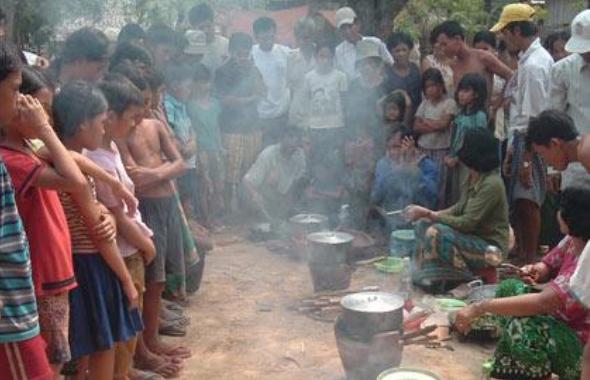While we need innovative and large-scale technological solutions to solve our environmental problems, let’s not forget that small incremental solutions can also play a part. Take the case of a simple improved cookstove, which can help to tackle the health, energy and environmental problems in Cambodia.
Nexus-Carbon for Development is a cooperative of development organisations that supports communities in developing countries by scaling up climate-friendly projects, and enables its members to share expertise and services, and access technical assistance and funding opportunities such as carbon finance.
Registered as a non-profit organisation in Singapore since 2008, Nexus works with its members to reduce greenhouse gas emissions, improve living standards, and provide access to clean energy and water. Members are development organisations, including social enterprises and NGOs, such as:
- Appropriate Rural Technology Institute, India
- Cambodian Center for Study and Development in Agriculture
- Group for the Environment, Renewable Energy and Solidarity (GERES), French NGO
- Hydrologic Social Enterprise, Cambodia
- The Center for Rural Communities Research and Development, Vietnam
- The Centre for Rural Technology, Nepal
- The Village Education Resource Center, Bangladesh
- Yayasan Dian Desa, Indonesia
Nexus works closely with its members to develop projects in developing countries, and current projects include water purifiers, improved cooking stoves, and biodigesters.
GERES – New Lao Stove Project
One example of a project developed by a Nexus member is the New Lao Stove Project by GERES. GERES or the Group for the Environment, Renewable Energy and Solidarity, is a French NGO that has implemented innovative and sustainable development projects in developing countries for over 30 years.
In Cambodia, people usually use wood for cooking, and wood provides for more than 80% of their energy needs. With increased population growth and development, unsustainable management of wood resources becomes a major issue. In addition, cooking with wood and charcoal results in negative health impacts and indoor air pollution is responsible for respiratory, heart and eye problems.
In order to tackle the health, energy and environmental problems, GERES developed the improved cookstove, the New Lao Stove (NLS), which uses 22% less wood and charcoal as compared to a traditional stove, and introduced the NLS in Cambodia in 1999.
With less wood being use, the NLS helps to reduce the deforestation and illegal logging in Cambodia, and reduces carbon emissions from burning. The reduced emissions result in less indoor air pollution and improved health of the users. Households also spend less money to buy the fuel or spend less time to collect the wood. In addition, the NLS are manufactured locally, creating new job opportunities for the local communities in production, distribution and sales of the stoves.
Since 2003, the project has distributed more than 1.5 million stoves across Cambodia, and over 40% of Cambodian urban households have at least one stove. The project has reduced more than 1.1 million tons of CO2-equivalent emissions from 2003 to 2010, or 5,000 hectares of wood saved. Over 1,100 jobs were also created.
The carbon emissions saved are registered as carbon credits under the Verified Carbon Standard (VCS) programme and can be purchased for carbon offsetting at Nexus-beyond offsetting, the partnership platform created by Nexus members to offer a fair approach to offsetting.
This improved cookstove project in Cambodia creates multiple wins for the environment, health and people, and shows the importance of small incremental solutions. Both small and large-scale solutions are needed to tackle our environmental problems in Asia.
Source credit: Nexus-Carbon for Development; Nexus-beyond offsetting
Image credit: Nexus-Carbon for Development

